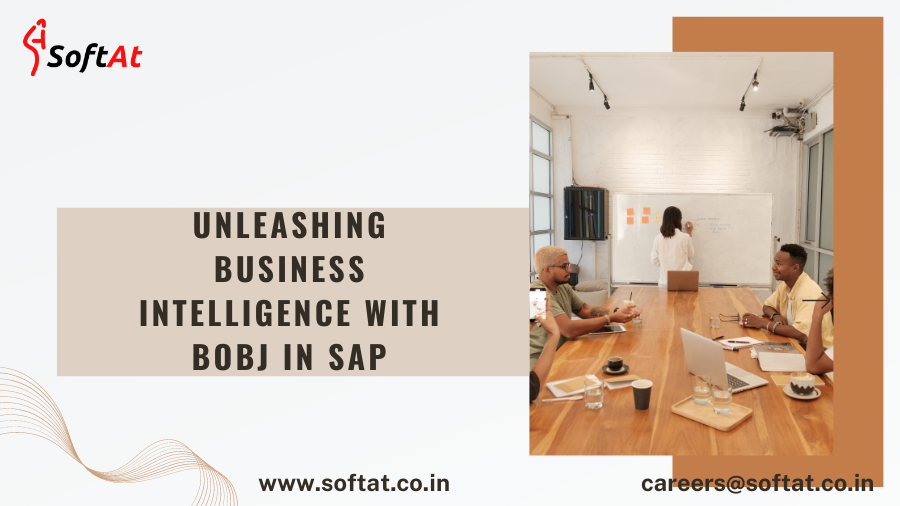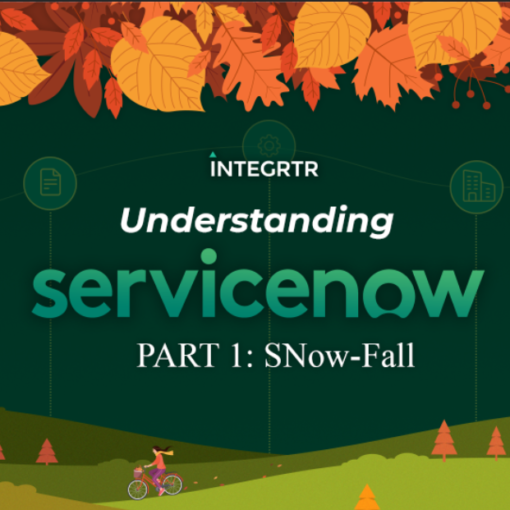Introduction: In the world of data-driven decision-making, harnessing the power of business intelligence (BI) is crucial for organizations to stay competitive and make informed choices. SAP BusinessObjects (BOBJ) is a leading BI suite that empowers businesses to transform raw data into actionable insights, aiding strategic planning and driving better outcomes. In this blog, we will explore the key features, benefits, and implementation considerations of SAP Business Objects. Business Intelligence
What is SAP BusinessObjects (BOBJ)?
SAP BusinessObjects (BOBJ) is a comprehensive business intelligence platform that facilitates data visualization, reporting, and analytics. As part of the SAP ecosystem, BOBJ seamlessly integrates with various SAP and non-SAP data sources, delivering powerful insights to business users across the organization. It offers a user-friendly interface and a wide range of tools for data exploration and decision support.
Key Features of SAP BusinessObjects (BOBJ in SAP)
Data Connectivity: BOBJ allows seamless integration with various data sources, including SAP applications, relational databases, spreadsheets, and cloud-based repositories. This connectivity ensures a unified view of data from disparate sources.
Reporting and Dashboards: BOBJ offers a variety of reporting and dashboarding tools that enable users to create visually compelling reports and interactive dashboards. Users can customize data visualization to suit their specific needs and deliver impactful presentations to stakeholders.
Ad-Hoc Analysis: With ad-hoc analysis capabilities, users can explore data in real-time, asking spontaneous questions and gaining deeper insights on the fly. This feature enhances data exploration and facilitates data-driven decision-making.
Data Exploration and Visualization: BOBJ provides a wide range of chart types and visualization options, enabling users to present data in a meaningful and easily interpretable manner. This helps in identifying patterns, trends, and outliers quickly.
Self-Service BI: Self-service BI empowers business users to access and analyze data independently, reducing dependency on IT and expediting decision-making processes.
Mobile BI: BOBJ offers mobile BI capabilities, allowing users to access reports and dashboards on their mobile devices anytime, anywhere. This ensures that critical insights are available on the go.
Benefits of SAP BusinessObjects (BOBJ in SAP)
Enhanced Decision-Making: With BOBJ, users can access real-time, accurate data and create insightful reports and dashboards. This leads to faster, data-driven decision-making at all levels of the organization.
Improved Business Performance: By identifying key performance indicators (KPIs) and monitoring them regularly through BOBJ, organizations can optimize processes and improve overall business performance.
Centralized Data Repository: BOBJ provides a centralized repository for reports and data, ensuring that users across the organization have access to the most up-to-date and consistent information.
Scalability and Flexibility: BOBJ’s scalable architecture allows organizations to grow their BI capabilities as their data and user requirements increase. Additionally, BOBJ can be integrated with various applications, offering flexibility in terms of data sources.
Cost-Effective: By empowering business users to perform ad-hoc analysis and create reports independently, BOBJ reduces the burden on IT departments, resulting in cost savings.
Seamless Integration with SAP: For organizations already using SAP applications, BOBJ offers seamless integration, enabling users to extract maximum value from their SAP investments.
Implementation Considerations
Implementing SAP BusinessObjects requires careful planning and considerations to ensure its successful adoption. Here are some key implementation factors:
Needs Assessment: Conduct a thorough needs assessment to understand the specific BI requirements of your organization. Identify key stakeholders and involve them in the decision-making process.
Data Governance: Establish data governance policies to ensure data accuracy, security, and compliance. Define data access levels and user roles to maintain data integrity.
Data Integration: Ensure that BOBJ is integrated with relevant data sources, including SAP and non-SAP systems. Assess data quality and perform data cleansing if required.
User Training and Adoption: Provide comprehensive training to end-users to help them utilize BOBJ’s capabilities effectively. Encourage user adoption by demonstrating how BOBJ can add value to their day-to-day tasks.
Security and Access Control: Implement robust security measures to protect sensitive data and ensure that access to information is granted based on user roles and responsibilities.
Performance Optimization: Fine-tune BOBJ’s performance by optimizing data queries, indexing, and caching mechanisms to ensure faster report generation and data retrieval.
Conclusion
SAP BusinessObjects is a powerful BI platform that empowers organizations to make informed decisions, improve business performance, and drive growth. With its wide array of features, data visualization capabilities, and seamless integration with SAP and non-SAP systems, BOBJ provides an invaluable toolset for business users and decision-makers. Implementing BOBJ requires strategic planning, user training, and adherence to best practices in data governance and security. By leveraging the full potential of SAP Business Objects, organizations can unleash the true power of business intelligence and gain a competitive edge in today’s data-driven landscape.





